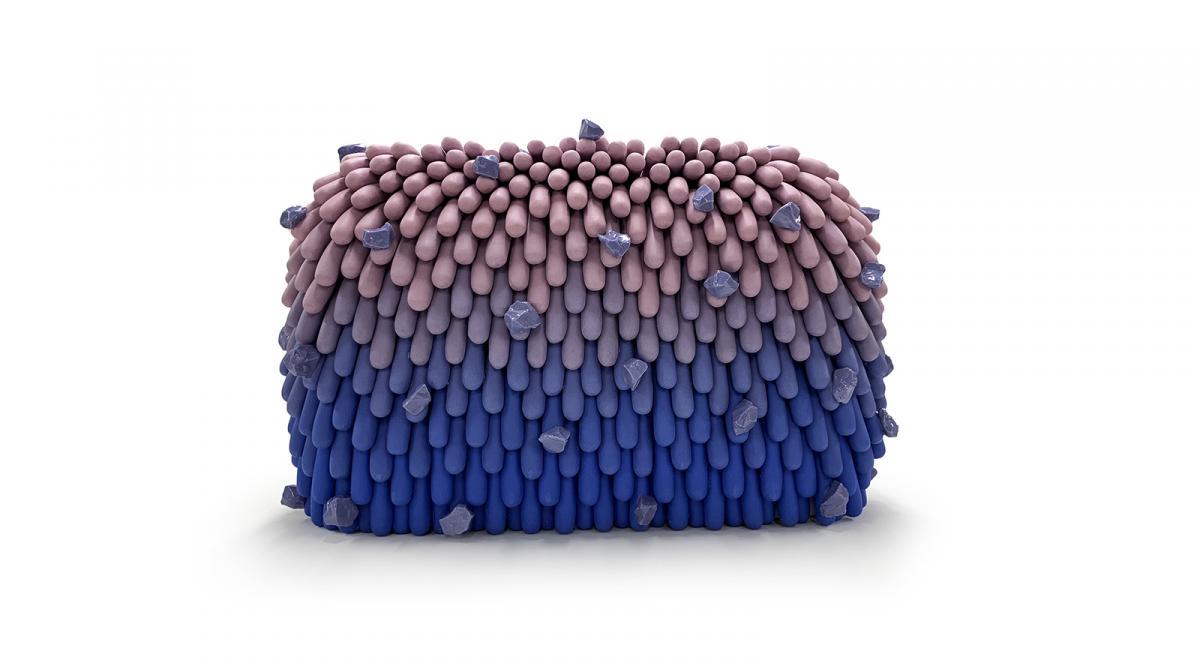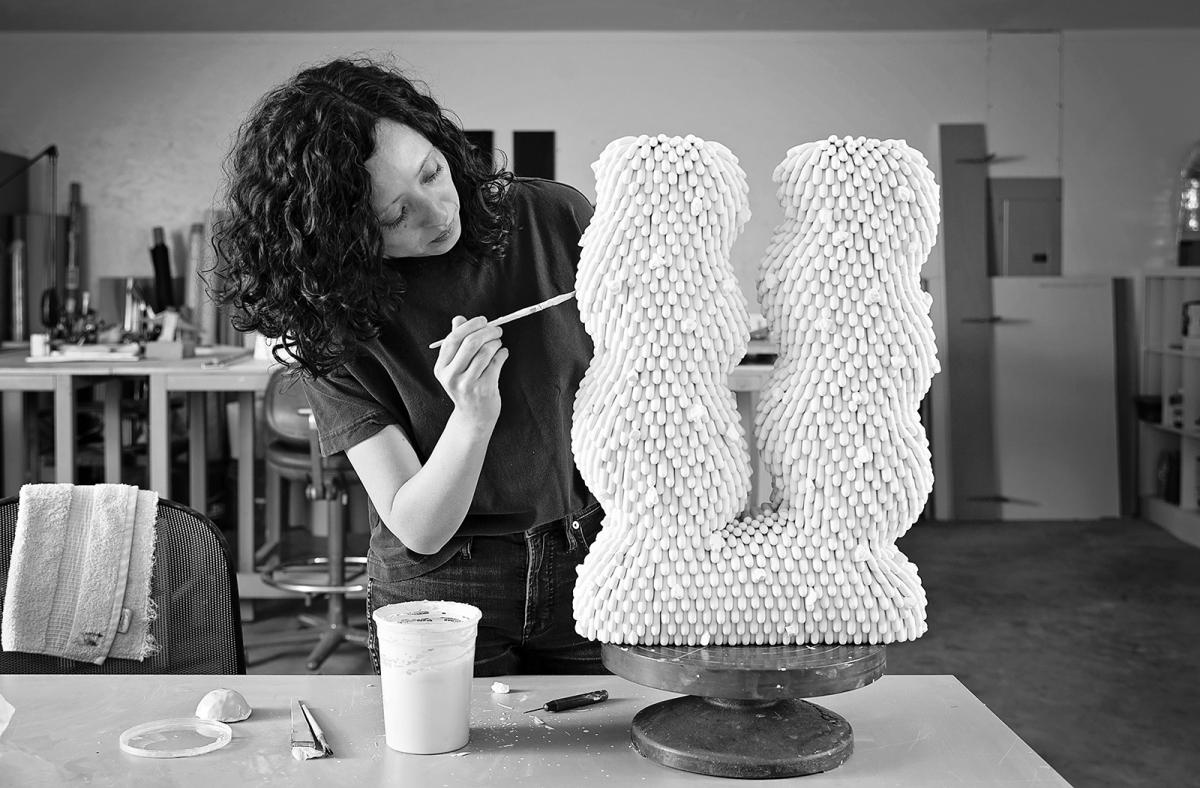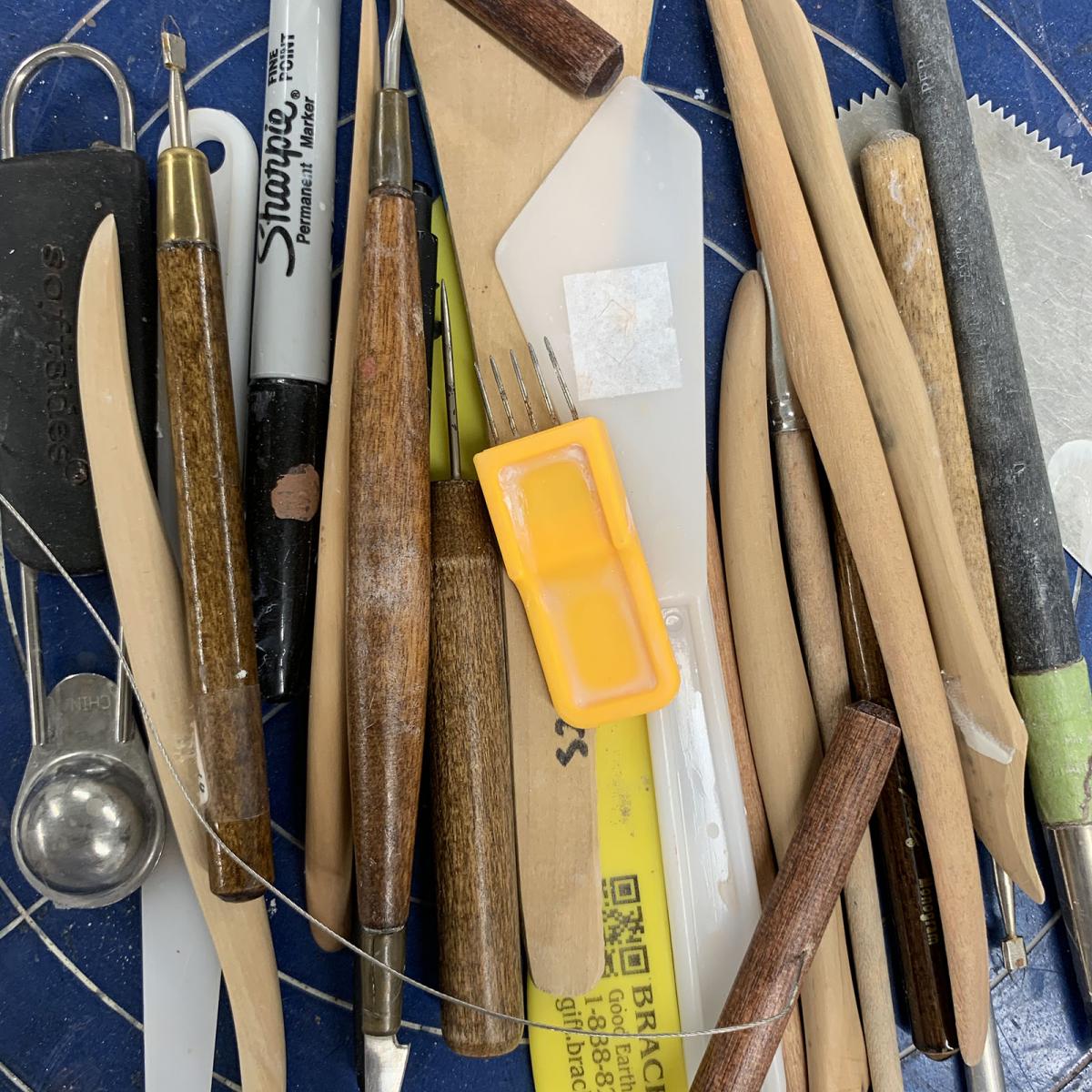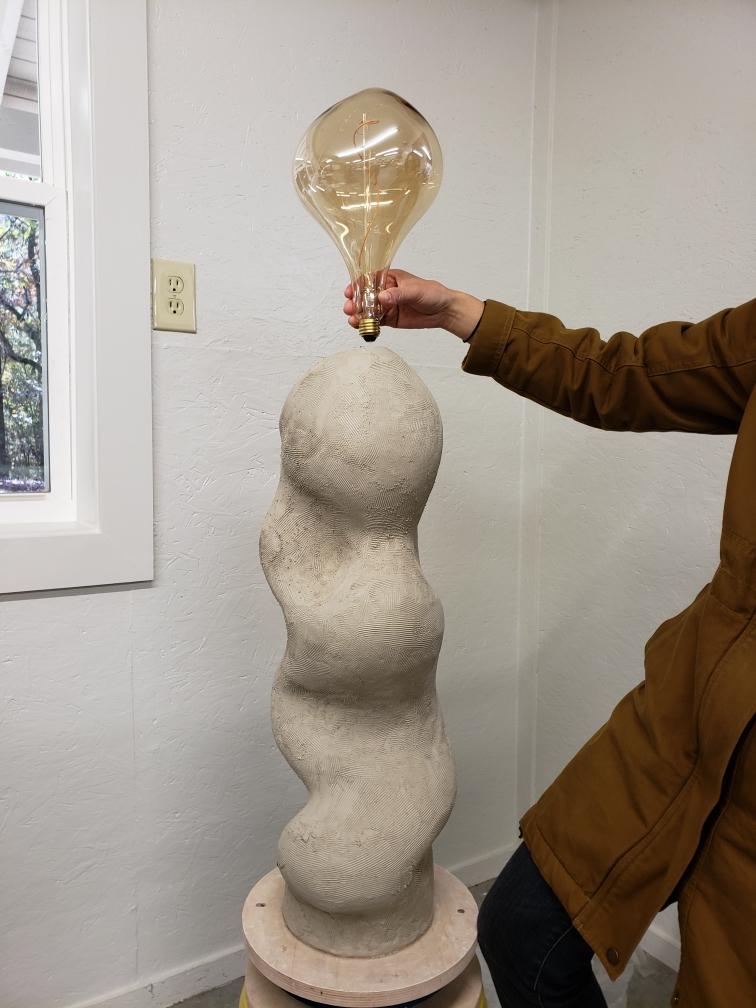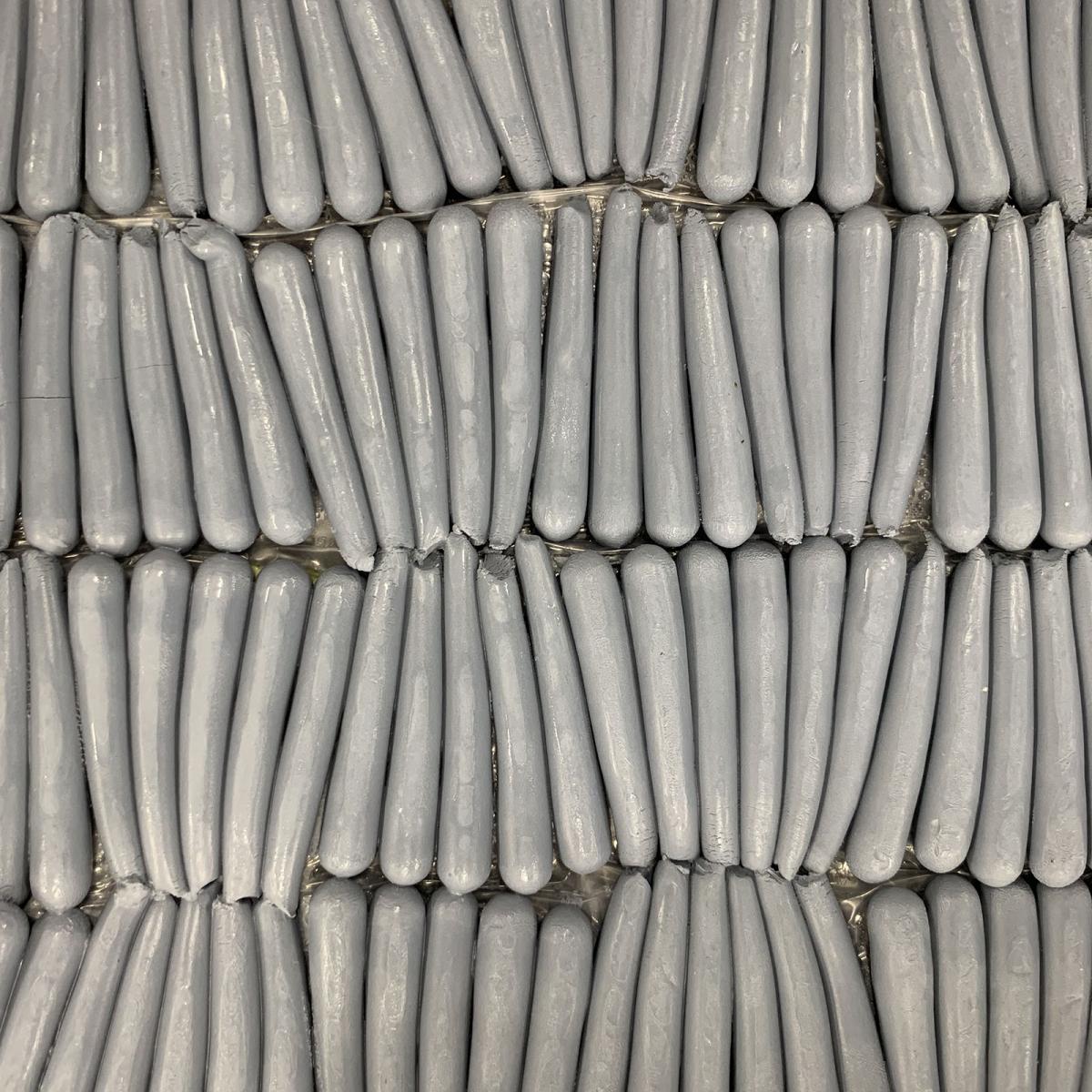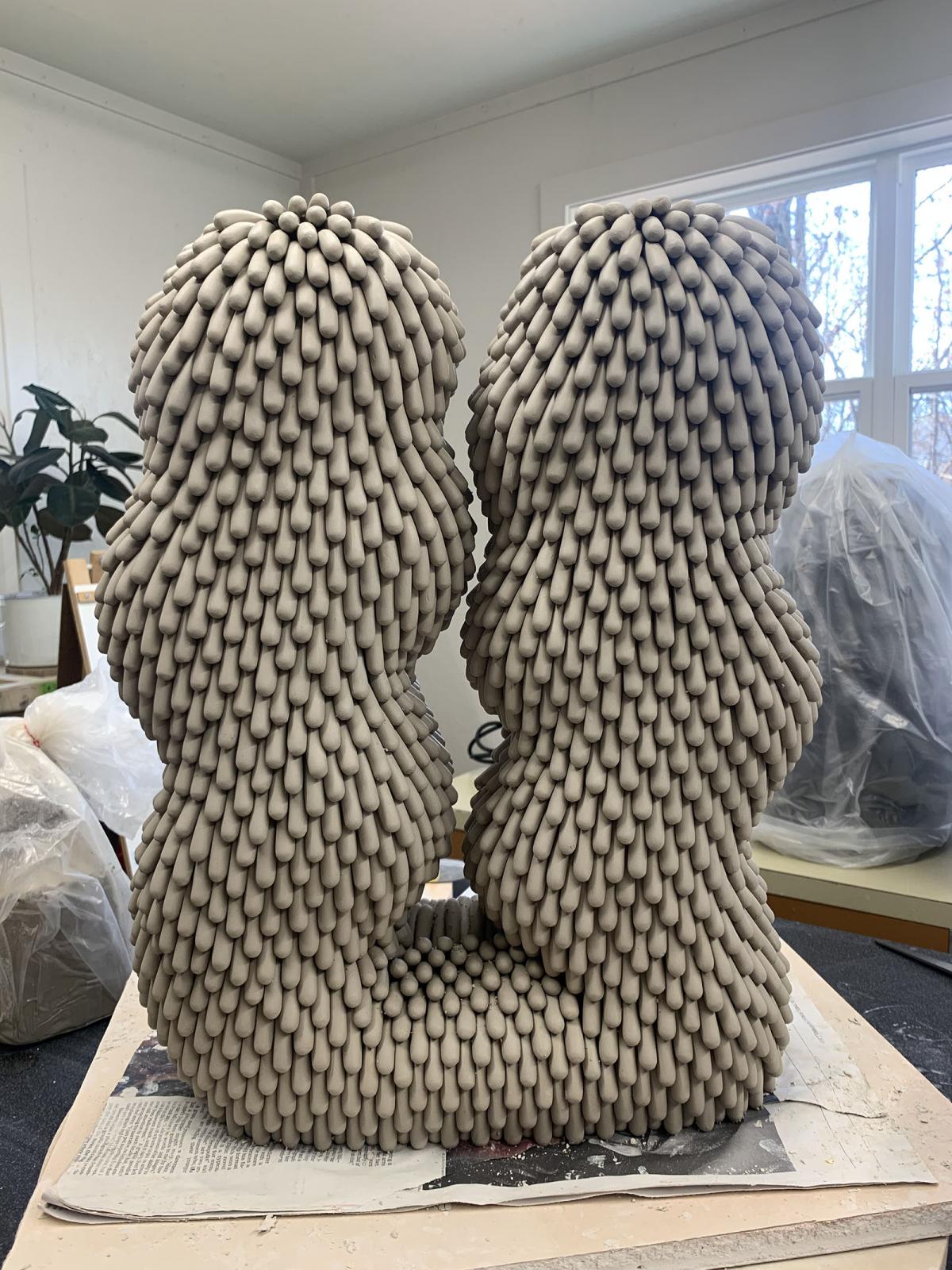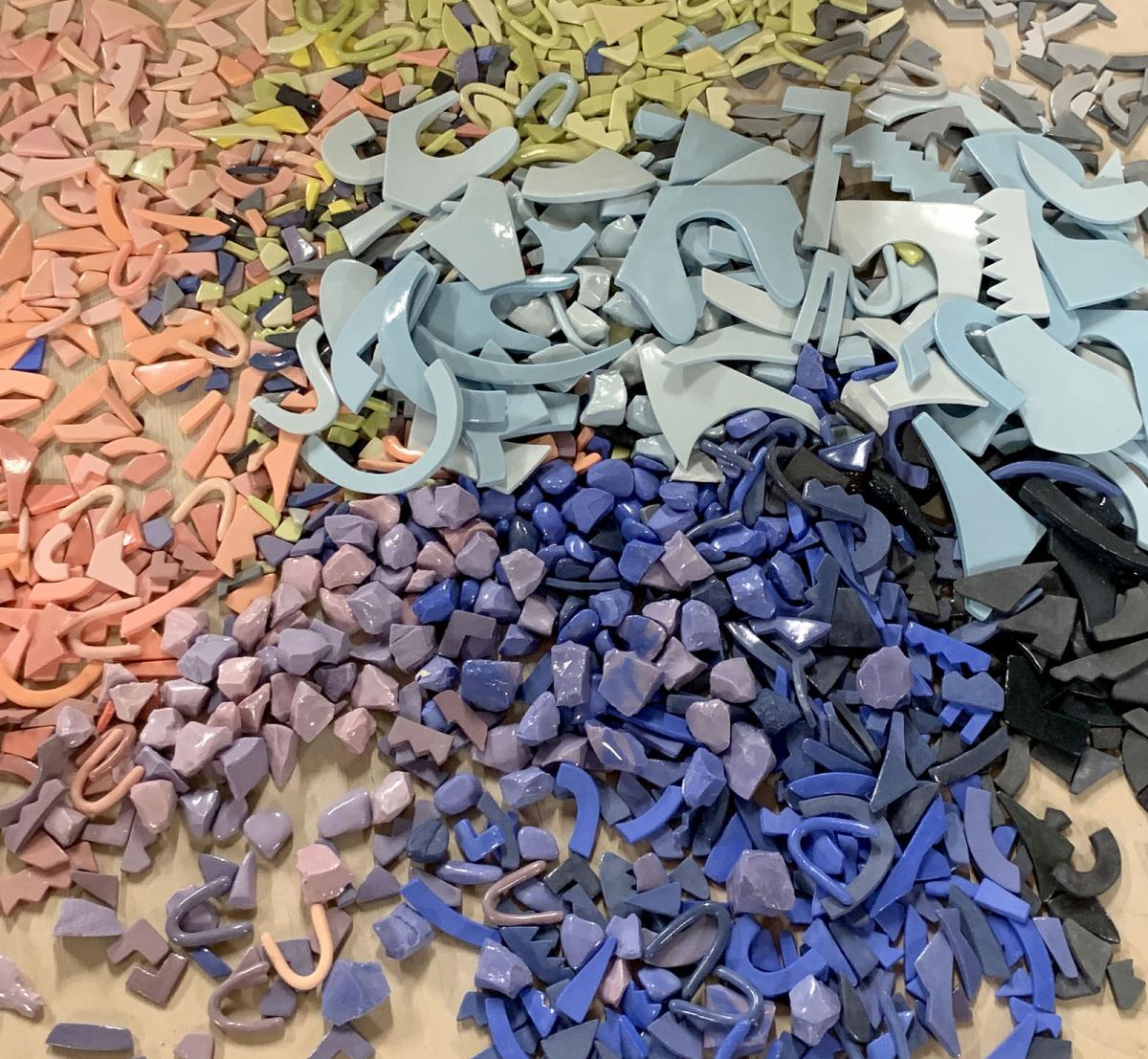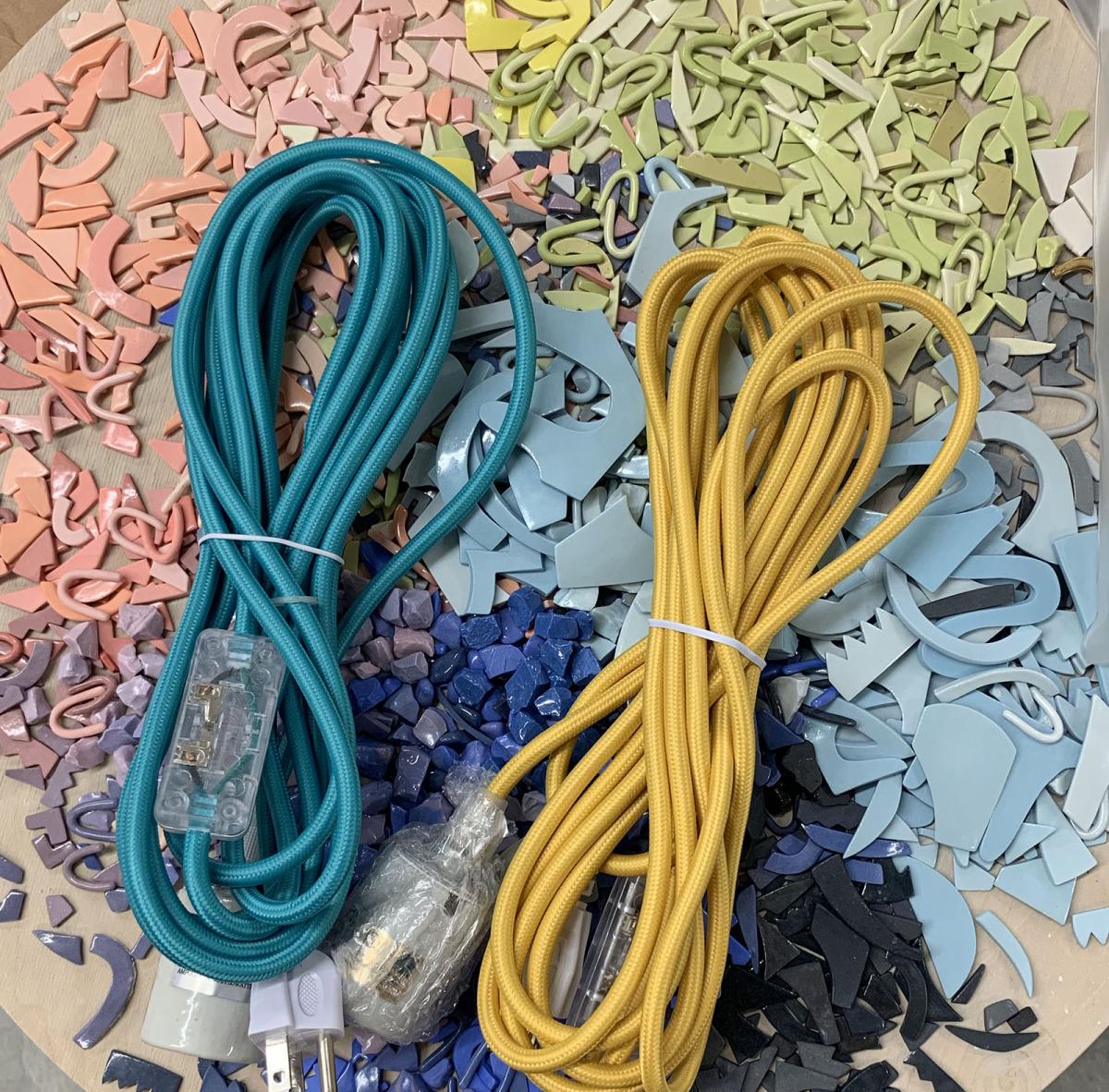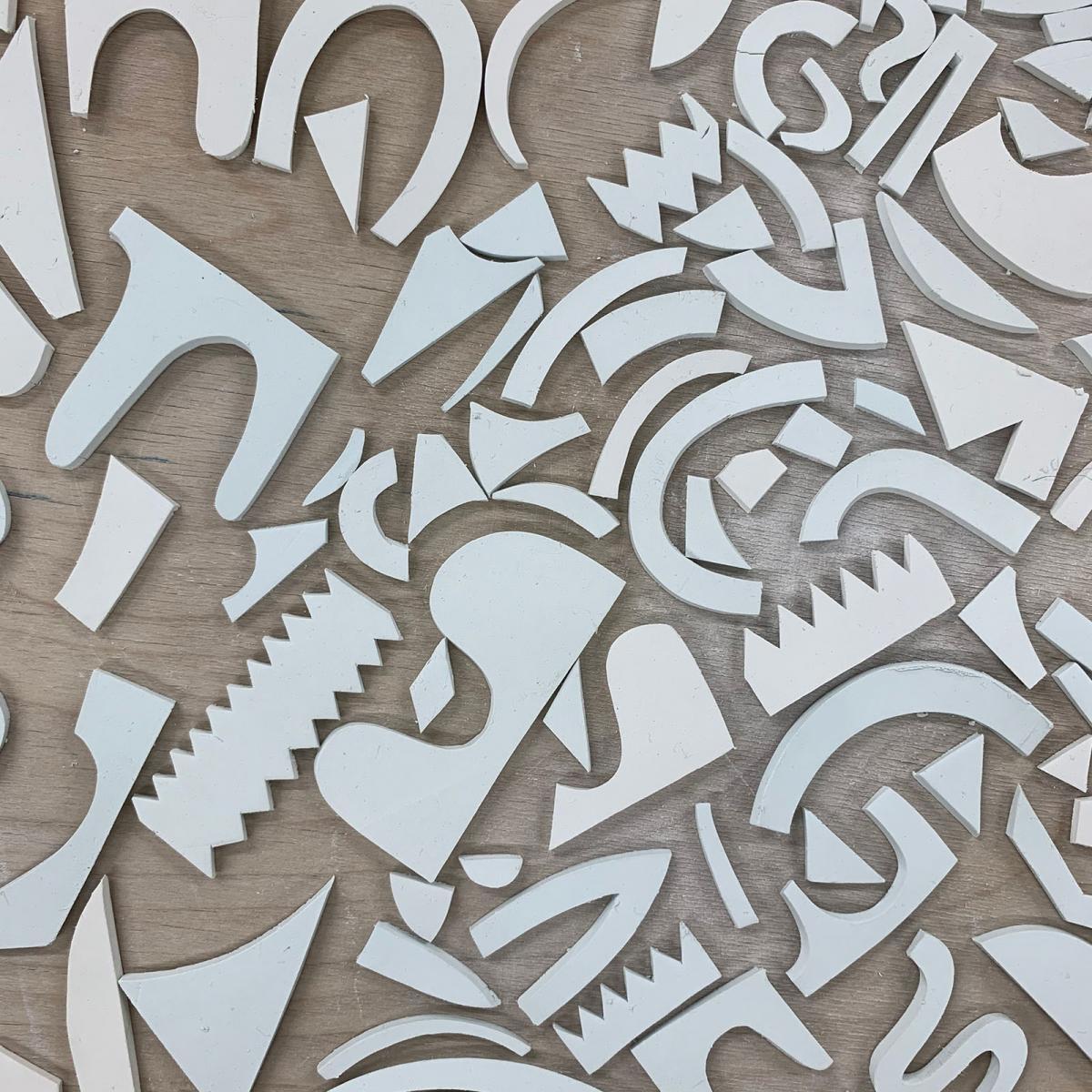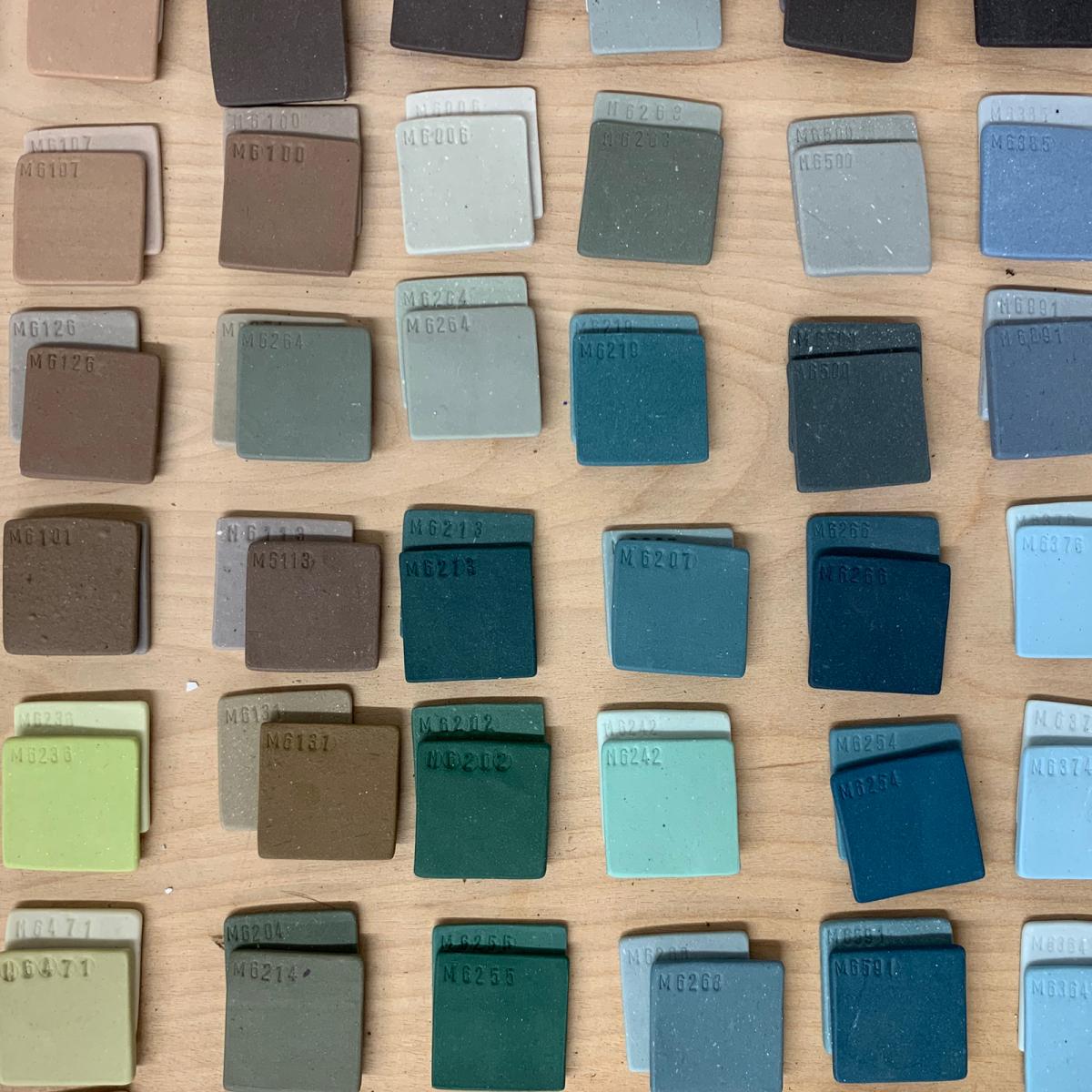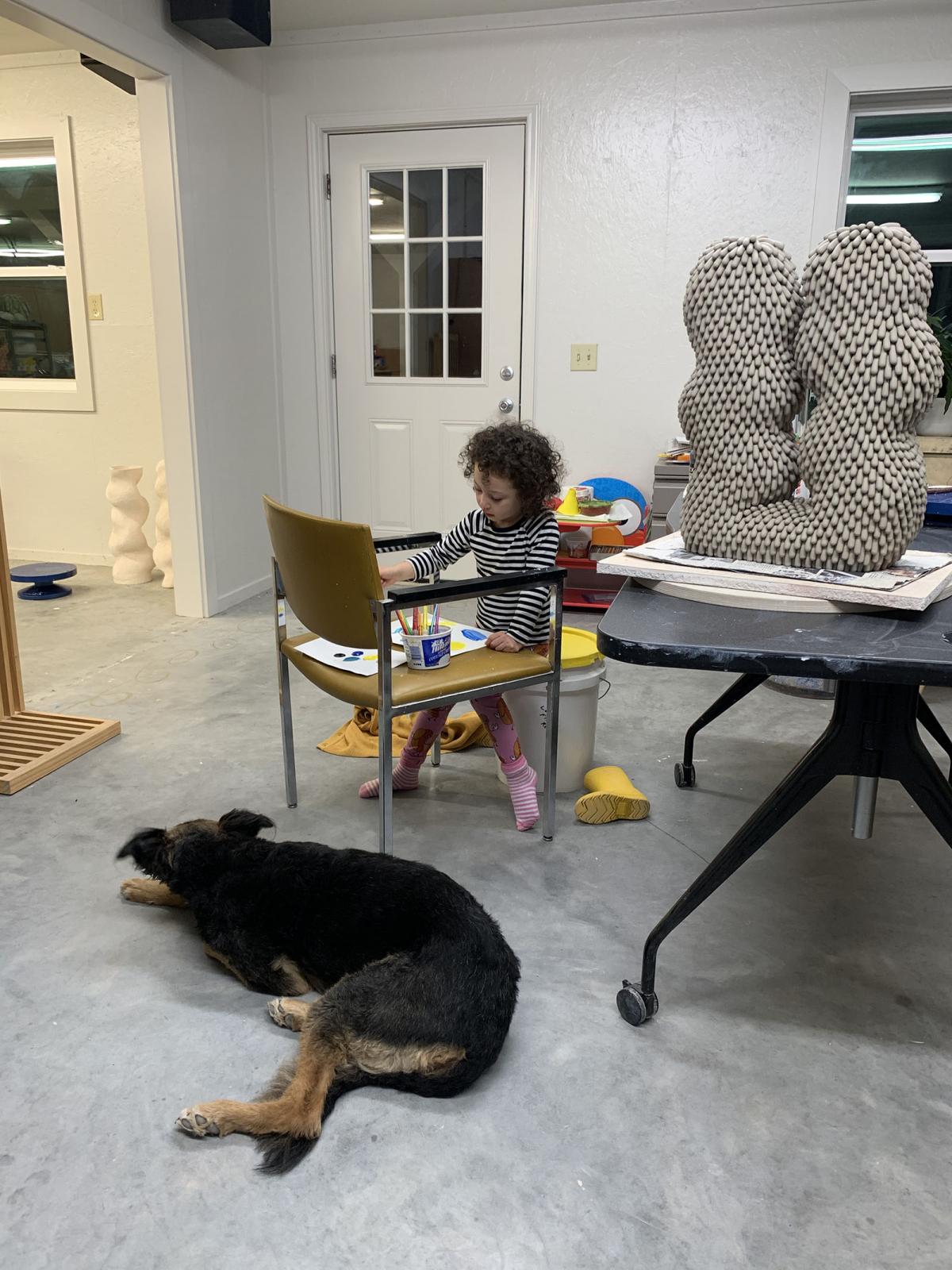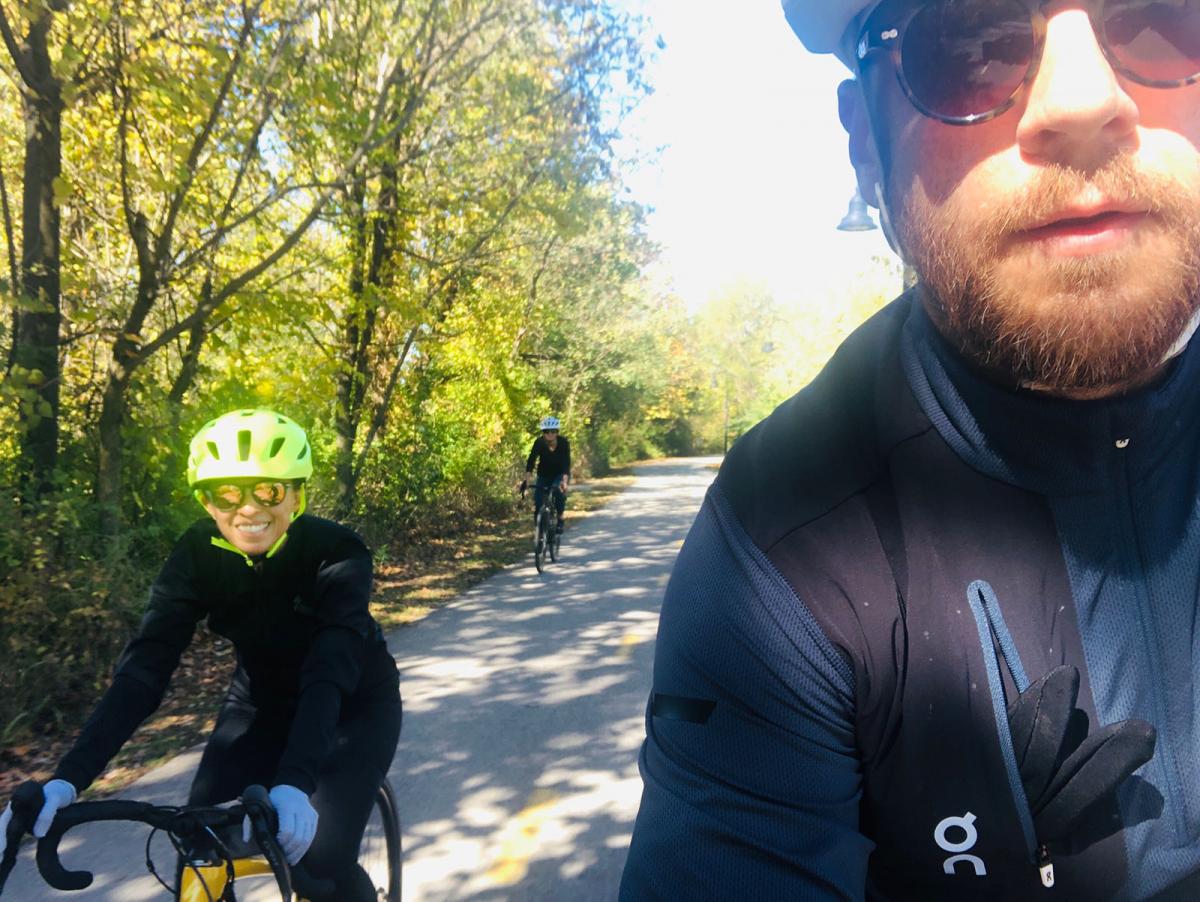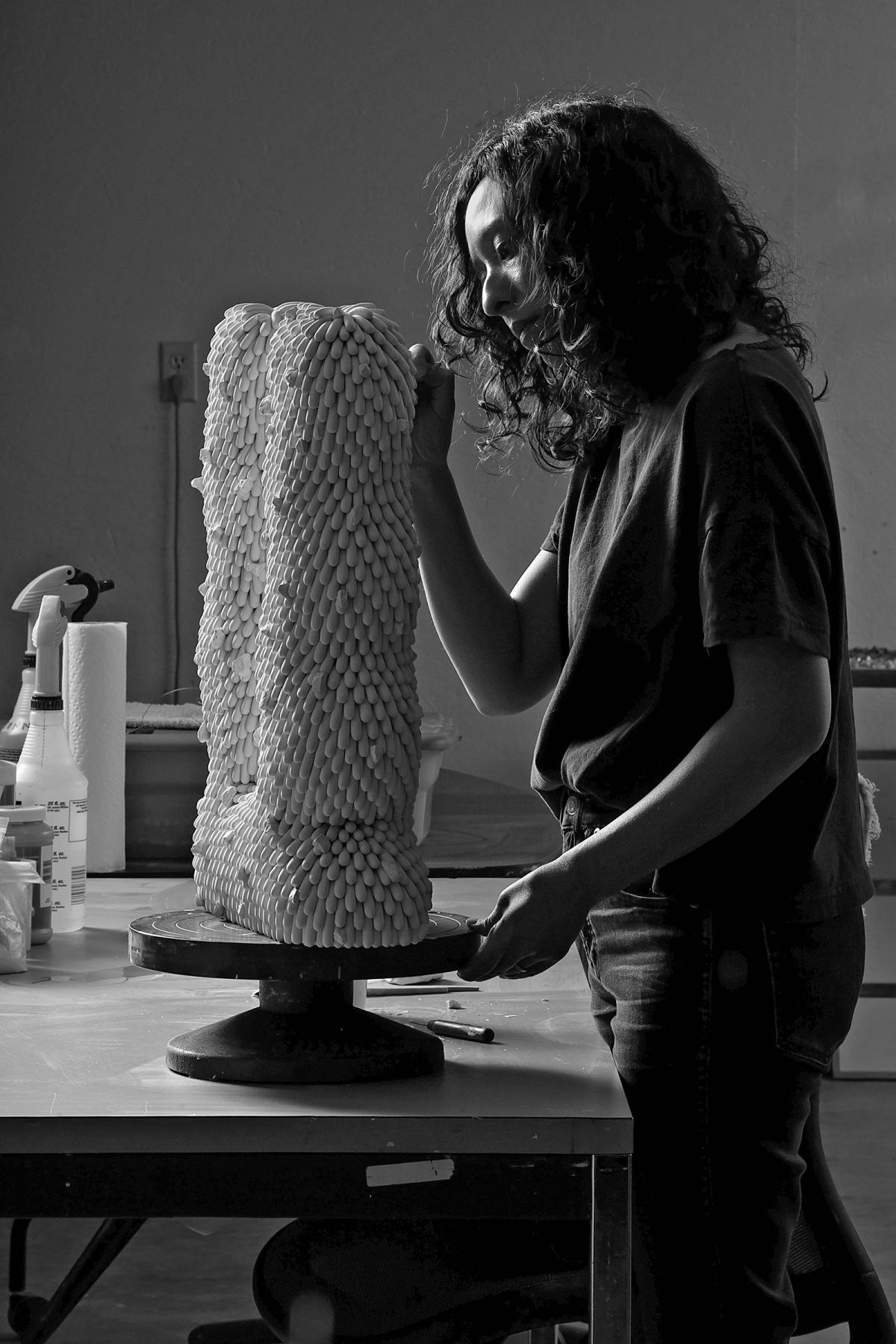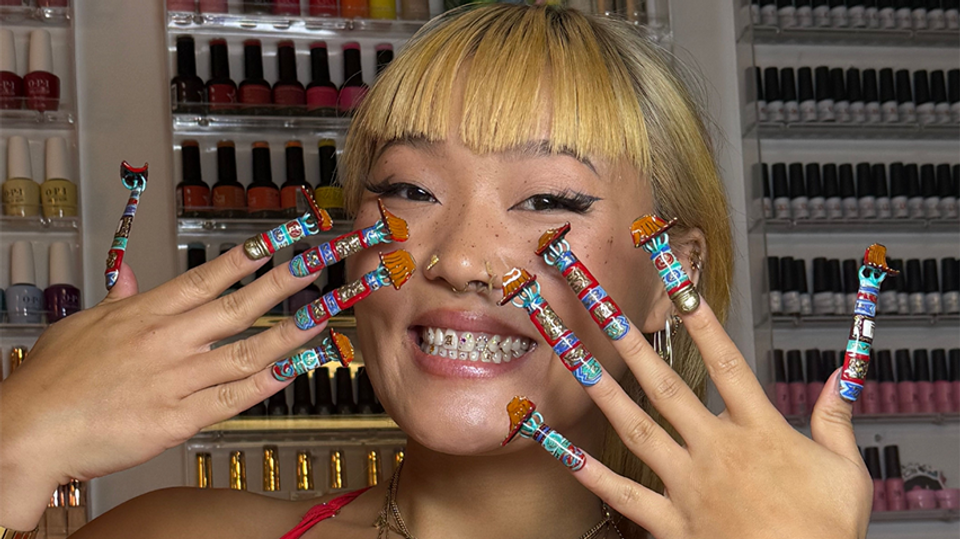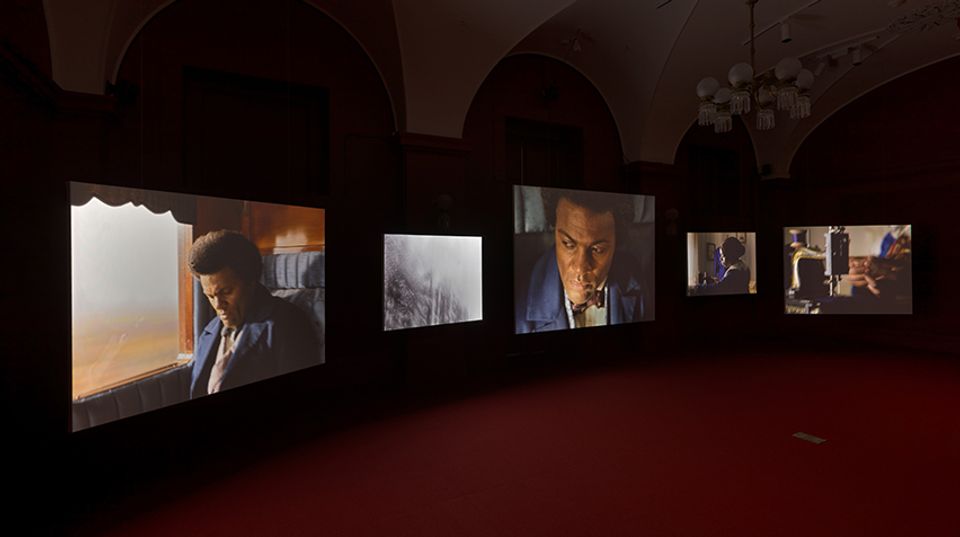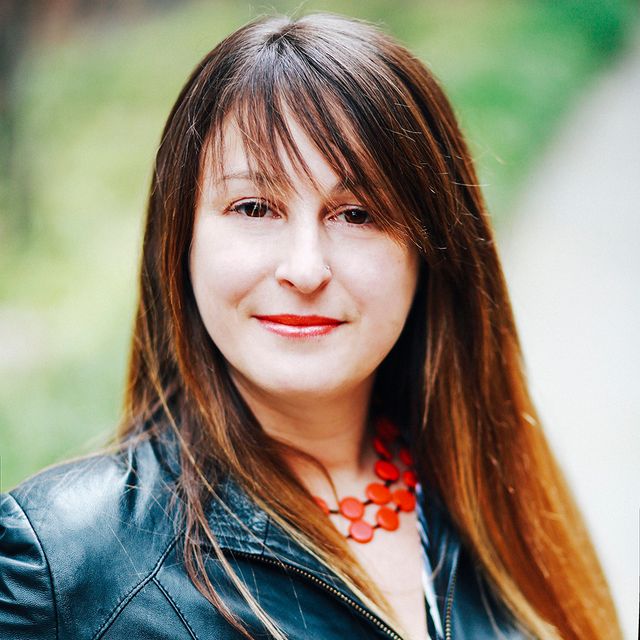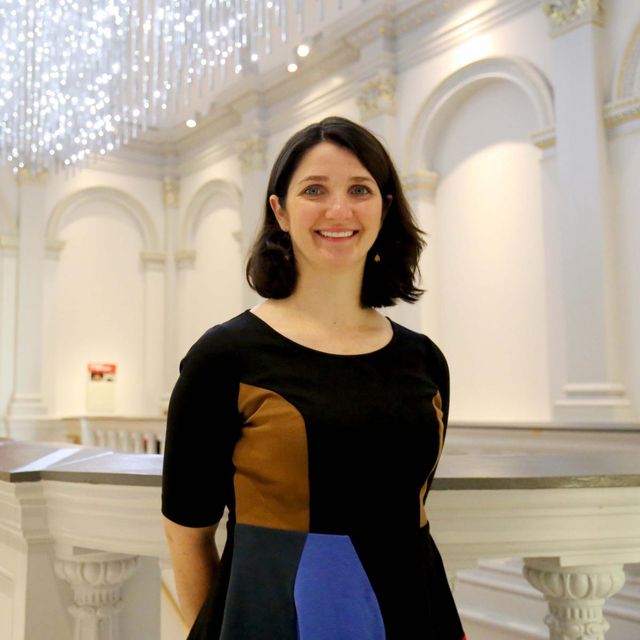
Mary Savig, the Lloyd Herman Curator of Craft at SAAM’s Renwick Gallery, has been collecting firsthand accounts of the dual pandemics, COVID-19 and systemic racism, from artists working with craft-based materials and techniques. In this series, “Making the Most: Craft Practice during the Dual Pandemics,” artists share personal insight into how they responded to the cascade of canceled or delayed programs, workshops, and exhibitions, as well as the demands of social distancing and social justice. Each account brings new understanding to the import of the studio as a space of reflection, creation, and collaboration.
Linda Nguyen Lopez is a first-generation American artist of Vietnamese and Mexican descent. From her studio in Arkansas, Lopez creates lively and unexpected sculptures from clay. The museum recently acquired Blue/Purple Ombre with Rocks, a charismatic "furry" that prompts viewers to slow down and experience the textures of our everyday life. The furry also features decorative rocks that were inspired by the scraps and piles of materials Lopez's young daughter keeps on her own art table.
Describe your daily routine during COVID-19.
At the beginning of shutdown my routine drastically shifted. Mathew, my partner and I were tasked with juggling academic and preschool Zooms (we have a young daughter, Oona), and studio time. It became an orchestrated routine of balancing schedules, coordinating daily tasks, and trying to find time for ourselves. I often took to jogging as a way to get out of the house, release some energy, and appreciate the landscape around us.
Studio time was limited to evenings, as our days were spent taking care of our kiddo as well as trying to figure out how to teach over Zoom—how do you teach ceramics through a screen? That was the biggest challenge—I felt like all my creative energy was being used in trying to reinvent how to teach.
How has the pandemic changed your studio practice (for example, describe the effect of lockdowns, exhibitions, collaborations, teaching, shows, and protests)?
Due to the cancelation and postponement of exhibitions, the pandemic made space for moments without the pressure of looming deadlines. This time has given me space to reconnect with my studio practice, experiment, and take risks. Headspace, a mosaic lamp which was exhibited at Fisher Parrish Gallery in Brooklyn, is a great example of the new direction my work is taking. It came directly out of this newfound pandemic-induced freedom and is meant to illuminate the long days and nights of shutdown.
What does your life look like without travel or in-person collaboration? How has this changed your practice?
Speaking of nights, this month I am celebrating 365 days of sleeping in the same bed! I cannot remember the last time I spent that many consecutive days in the same place. Mathew and I travel often for research, exhibitions, and lectures. I miss these “work vacations” when I had the chance to work in a new city and spend a little bit of time away from home. We would eat at delicious new restaurants, see exhibitions, and get to know artists all over the world. I often found these trips rejuvenating and inspiring. Not having them has had me obsessively searching for Airbnb rentals by the water (within driving distance) as a way of changing up the rhythm of lockdown life!
A ceramics studio practice requires a knack for good timing and a reservoir of patience. In pre-pandemic times I would book travel dates as a way of creating a timeline that would align with, studio deadlines, such as shaping the greenware (unfired clay) and leaving enough time for it to dry before firing it. Whatever project I was working on would have to be finished by the time I left, so that it could dry while I was away. I had perfected this system, but now that I have been home for almost an entire year, I am starting to notice an accumulation of unfinished projects!
How has your sense of home shifted with the pandemic? For example, how has your relation to food or domestic life changed? How do you connect to others?
This pandemic has allowed me to appreciate the life we have here in Fayetteville. As a native Californian, I miss the quick accessibility of both mountains and sea. Though the landscape in Northwest Arkansas is different from the one I grew up with, this time has given me the space to reflect and to appreciate the lush natural beauty of the Ozark National Forest, which we live next to. We’ve taken up cycling, so we’re seeing more of it from our bikes than we ever have before. In many ways, the pandemic has given us the opportunity to resettle into our home and even tweak it a bit. A few months into shutdown, we decided to renovate the studio by adding a much-needed studio sink, bathroom, windows, and porch. Mathew (who is also an artist) and I, are not the only ones using this newly refurbished space. Our toddler daughter Oona has her own designated mini studio where she paints, draws, and sculpts. I really appreciate being able to work from home and feel so inspired by my daughter’s studio energy!
The COVID shutdown has been an introvert's dream! It takes a lot of energy for me to be in social settings, so I found myself nourished by being home. I do miss people, especially our close friends and as a result have spent much more time talking on the phone. I also have found fulfillment in connecting to others through watching and listening to artist talks and lectures.
What feels most important going forward?
I feel like I am still digesting 2020. So, I think it will be important to take time to be mindful, empathetic, and optimistic as 2021 unfolds.














